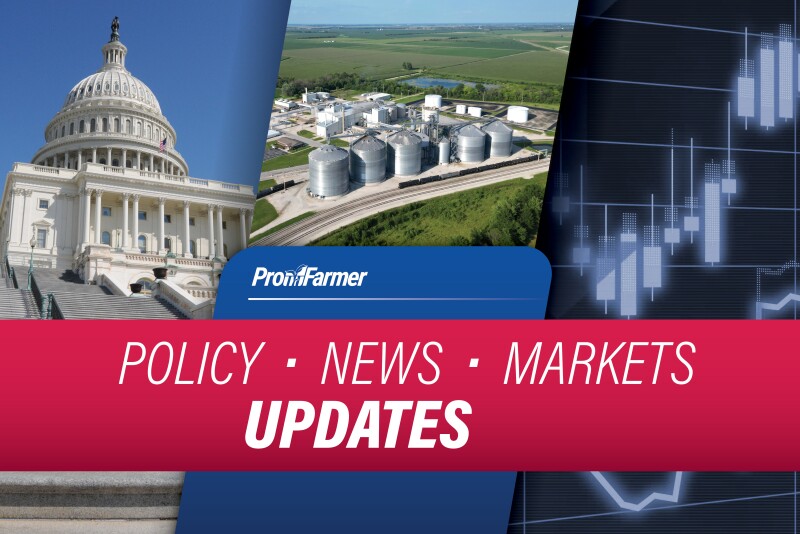White House urges Supreme Court to end tariff challenge... White House Press Secretary Karoline Leavitt called on the Supreme Court to “put an end” to ongoing legal challenges against President Donald Trump’s tariff agenda, asserting that the president’s rationale for imposing the duties is “legally sound.” Leavitt said the trade court’s recent ruling blocking some tariffs was an “abuse of judicial power” and ignored the president’s authority to act in the interest of national security.
U.S. Trade Representative Jamieson Greer has heard from countries that they intend to continue with trade negotiations, Leavitt added.
Officials are considering invoking a rarely used provision of the Trade Act of 1974 that allows the president to impose tariffs of up to 15% for 150 days to address trade imbalances. This measure — never before tested — would serve as a temporary shield across wide swaths of global imports. The goal of this stopgap would be to buy time while the administration initiates a more durable and legally grounded effort: crafting individualized tariffs for major trading partners under Section 301 of the same law.
This phased approach would allow the White House to maintain tariff pressure in the near term while working toward long-term trade retaliation measures against specific countries.
U.S./China tariff talks ‘a bit stalled,’ needs Trump, Xi input... U.S. trade talks with China are “a bit stalled” and getting a deal over the finish line will likely need the direct involvement of President Donald Trump and Chinese President Xi Jinping, U.S. Treasury Secretary Scott Bessent said.
Bessent told Fox News that progress since a temporary trade truce two weeks ago has been slow, but said he expects more talks in the next few weeks.
President Trump on Friday accused China of violating a preliminary trade agreement with the United States. Greer said China is not complying with a trade agreement, calling it “completely unacceptable.” China is “slow-rolling compliance” and not opening their economy, Greer said on CNBC.
Since the mid-May deal with China, the Trump administration has concentrated on tariff negotiations with other major trading partners, including India, Japan and the European Union.
Bessent is meeting with a Japanese delegation today in Washington.
Reuters: White House considers plan for clearing SREs... The White House is weighing a plan to clear a record backlog of requests from small refineries for exemptions (SREs) from U.S. biofuel laws, which could include approving many current applications and requesting industry input to deal with older ones, three sources familiar with the plans told Reuters.
The White House is considering granting many of the 19 requests for exemptions from 2024 and issuing a rule seeking input on how to deal with the others, some of which date back to 2016, the sources said. The White House would also likely force larger refiners to make up for the exempted gallons in a process known as reallocation, but the details are still being worked out, the sources said.
Details could change as industry constituents step up engagement with the administration. The decision-making process is now being led by the White House Energy Dominance Council and senior adviser Stephen Miller, signaling the issue’s prominence in the Trump administration’s broader energy strategy.
White House corrects errors in MAHA report... On Thursday, the White House uploaded a new version of the recently released Make American Healthy Again (MAHA) report, correcting errors it contained. This action followed a NOTUS news investigation, which revealed that seven of the more than 500 studies cited in the report either had not been published or were misrepresented. Some studies were similarly misrepresented, raising concerns about the accuracy and credibility of the report’s citations — these included fictitious studies on direct-to-consumer drug advertising, mental illness and medications prescribed for children with asthma.
White House spokesperson Karoline Leavitt acknowledged the issues during a briefing, stating, “I understand there was some formatting issues with the MAHA report that are being addressed, and the report will be updated.” She emphasized that these errors do not undermine the overall substance of the report, describing it as “one of the most transformative health reports that has ever been released by the federal government.”
Trump administration officials maintain that the core findings and recommendations of the report remain valid and impactful, despite the citation errors.
SCOTUS narrows NEPA review scope... The U.S. Supreme Court on Thursday issued a significant 8-0 ruling that limits the scope of environmental reviews under the National Environmental Policy Act (NEPA). The case centered on the proposed 88-mile Uinta Basin Railway in Utah, intended to transport crude oil from the Uinta Basin to national markets.
In a majority opinion, the Court determined that NEPA is intended to function as “a procedural cross-check, not a substantive roadblock” for infrastructure and development projects.
The decision reshapes the legal obligations for federal agencies and private developers, emphasizing that NEPA’s role is to ensure environmental impacts are considered — not to empower courts or regulators to halt projects over their content. The ruling is expected to accelerate timelines for projects involving energy, transportation, and federal land use.
Legal analysts note that this aligns with a broader trend by the Court to limit regulatory burdens on development and infrastructure, echoing previous rulings that curtailed agency authority under the Clean Water Act and Clean Air Act.
The decision is likely to affect future challenges to federal permits, environmental assessments, and related litigation across multiple sectors.

